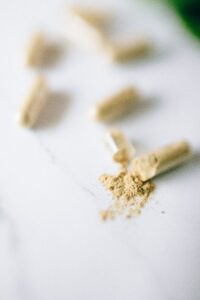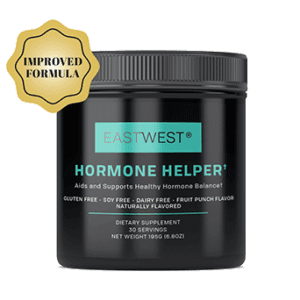If you’re interested in health and wellness, you may have heard about inositol on the grapevine. As this supplement becomes more high profile and is being talked about more seriously within the integrative health space, we’re sharing some myth-busting information on what inositol is, how it works and its exciting benefits for body and mind.
What is inositol?
Inositol is often referred to as ‘vitamin b8’ – but it’s actually a type of sugar. This sugar has many important functions within the body, from supporting mental health and metabolic rate to regulating insulin and regulating chemical messengers in the brain. It is also a key structural component of cell membranes.
Inositol is found naturally in different foods including some fruits, beans, nuts and grains. The body can also produce its own inositol where needed by converting carbohydrates.
What are the potential benefits of inositol?
Integrative health specialists are excited about inositol because it has many promising health benefits with few side effects. Research is still limited and is in its early stages, but several areas have been explored with some success so far. These include:
 *Mental health: Inositol interacts with some important chemicals in the brain, including those that affect mood such as serotonin and dopamine. Research on inositol and its potential benefits began after scientists found that some people with depression and anxiety disorders have lower levels of inositol in the brain. Studies so far have been conducted on people with panic disorder, depression and bipolar disorder with promising success. More research is needed before inositol becomes a recommended treatment however, and it is not a substitute for medications prescribed for these conditions.
*Mental health: Inositol interacts with some important chemicals in the brain, including those that affect mood such as serotonin and dopamine. Research on inositol and its potential benefits began after scientists found that some people with depression and anxiety disorders have lower levels of inositol in the brain. Studies so far have been conducted on people with panic disorder, depression and bipolar disorder with promising success. More research is needed before inositol becomes a recommended treatment however, and it is not a substitute for medications prescribed for these conditions.
*PCOS (Poly-Cystic Ovary Syndrome) – Inositol is showing promising and exciting results in studies focused on supporting women with PCOS symptoms. Clinical research has revealed that inositol supplements may improve symptoms and promote ovulation, especially when taken alongside folic acid. It is also thought to improve insulin function and slightly lower blood pressure, supporting symptoms such as weight gain and high blood sugar. One particular study in which women took 4 grams of inositol and 400mcg folic acid per day induced ovulation in 62% of participants within 3 months. This is particularly exciting as current treatment options for women with PCOS are limited and often invasive.
Supplements vs food sources
Inositol is naturally found in various foods in low quantities – including green vegetables such as peppers, asparagus, and collard greens, mushrooms, melons, nuts including almonds and peanuts, grains and beans. Preliminary research shows that supplementation is the best route to produce noticeable results – in one study a 1,800 calorie-per-day diet rich in myo-inositol yielded just 1.2 grams of inositol. Most supplements contain at least 3 grams.
Things to consider before taking inositol
As is the case with any supplement, it’s important to consult your doctor first, especially if you are taking any other medications. Once you have the green light, look for the highest quality, premium grade supplements made with pure, organic ingredients where possible.
 Inositol supplements are generally well-tolerated in studies. Researchers have studied doses of up to 18 grams per day and their benefits – doses of 12 grams per day and below produced very few side effects. Dosage and duration of treatment should ideally be managed by an integrative doctor who can properly advise you on how much to take to see benefits. Most over-the-counter inositol supplements tend to contain around 4 grams of active ingredient which is considered to be a low dose and safe for most people.
Inositol supplements are generally well-tolerated in studies. Researchers have studied doses of up to 18 grams per day and their benefits – doses of 12 grams per day and below produced very few side effects. Dosage and duration of treatment should ideally be managed by an integrative doctor who can properly advise you on how much to take to see benefits. Most over-the-counter inositol supplements tend to contain around 4 grams of active ingredient which is considered to be a low dose and safe for most people.
Our Hormone Helper blend
You’ll find inositol in our Hormone Helper Blend, which has been specifically designed to support a healthy hormone balance. Accompanied by choline, maca and saw palmetto, this blend is loved by women looking to lower androgens and balance estrogen levels.






